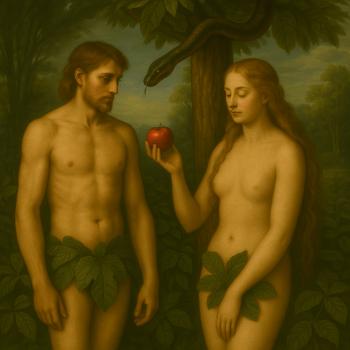Science is exploring the big questions that theology is ignoring. Have you ever heard a sermon on awe, consciousness, interconnection, mind beyond brain, or transcendence? Me, neither.
Last week, I spent ten days cruising around Svalbard, an archipelago halfway between Europe and the North Pole. Svalbard is the size of Scotland, with a population of fewer than 3,000 people. There were only 80 passengers on the ship. The tour was sponsored by “New Scientist” magazine. The featured speaker was Richard Dawkins, an evolutionary biologist and a prominent atheist.
You can imagine how much I enjoyed this trip, which combined my interest in travel, my love of the outdoors, and my sense of curiosity. At the same time, I wondered if I would feel at home. Would a mystical, poetic, reflective, spiritual writer be comfortable around a bunch of atheists and scientists? Absolutely.

The Science of Awe
On these polar cruises, no one buys art in the galleries, gambles in the casinos, shops in the stores or swims in the pools (except for the polar plunge!) Instead, everyone attends expert talks. To me, it is telling that the first talk that we heard was NOT about evolutionary biology or ocean currents or plankton (although we heard about all of those things later.) No, the first talk was about awe.
If I had a dollar for every time that one of the scientists said “awe,” “consciousness,” “interconnection,” “mind beyond brain,” “mystical” or “transcendence,” then I could have paid for the trip. (That’s no small feat!) Terms like “mystical” sound like religious terms, but Christians do NOT often talk about them. Some scientists talk about them a lot.
Many of these scientists, including Dawkins, are atheists. An atheist is simply someone who does NOT believe in a personal, supernatural god. An atheist is NOT amoral, cynical, nihilistic or selfish (at least not any more so than anyone else.) Many atheists, like Dawkins, are filled with awe, gratitude, reverence, and a sense of responsibility. But, they do NOT believe in a personal god.
Dawkins says that he is “spiritual” in the same way that Einstein was spiritual. Einstein was an atheist and a secular Jew. Einstein said that he believed in “the God of Spinoza.” Like Einstein, Spinoza was an atheist and a secular Jew. (If you are interested in Spinoza, then I recommend The Courtier and the Heretic: Leibniz, Spinoza, and the Fate of God in the Modern World.)
Scientists are awed and inspired, but they often attribute awesomeness and inspiration to the natural world, NOT to a supernatural source. It seems to me that science involves a balance between imagination and wonder on one hand, and discipline and skepticism on the other. One of my friends wisely suggested that spirituality involves the same balance. I completely agree.
The Science of Beauty and the Beauty of Science
Dawkins says that the universe is so complex that it appears to be designed. But his writings show that evolution by natural selection (where genetic mutations that enhance survivability persist and those that reduce survivability cease) explains the universe with no need for an intelligent designer. The fossil record and the genetic record both support evolution.
Dawkins wonders how an all-powerful creator could display so many design defects, genetic dead ends, and superfluous organs. “Yes,” some say, “but how did something come from nothing?” How do we know that something came from nothing? Perhaps the universe is eternal. “Yes, but how could the universe be eternal?” How could God be eternal? It is the same question.
Dawkins exudes awe, gratitude, reverence, and a sense of responsibility for the natural world. In Unweaving the Rainbow, he suggests that scientific explanations are NOT less wondrous than supernatural explanations. The more that science explains, the more vistas that it opens. Dawkins’ last talk on the ship was called “The Science of Beauty and the Beauty of Science.”
On the trip, we met with climate scientists, marine biologists, oceanographers and wildlife specialists. They are all concerned about climate change. I mean they are REALLY concerned about climate change in an apocalyptic, existential sense. In fact, they are losing sleep over the dire state of our planet that their objective evidence and their subjective experience is confirming.
As I was posting about the trip, some of my friends instinctively and naively recoiled. “Climate change is a theory.” Yes, it is a theory in the same way that gravity and natural selection are theories. “The Earth has always experienced periods of cooling and warming.” Yes, but NOT like this. If you study the science and talk to the scientists, you will NOT be so complacent.
Science is Exploring the Big Questions that Theology is Ignoring
Within a week, climate change is back on the front burner. We just woke up to the devastating news from nearby Kerrville, Texas, where over 100 people lost their lives in a catastrophic flood. Increasingly, even the most fervent Christians are suspecting that God is NOT coming to the rescue. If we want to fix the problems that we created, then we likely have to fix them ourselves.
Imagine that Jesus returns in AD 2500, only to discover that human beings destroyed themselves in AD 2100. In my opinion, it is much LESS likely to imagine that Jesus will return in 400 years than it is to imagine that human beings will destroy themselves in 100 years.
Science is exploring the big questions that theology is ignoring. Have you ever heard a sermon on awe, consciousness, interconnection, mind beyond brain, or transcendence? Me, neither. Further, can you think of any topics that are more relevant to our spiritual lives (or our everyday lives, for that matter?) Me, neither.
Next week, I will discuss my dinner with Richard Dawkins, arguably the most-renowned science writer of our time.
Stay tuned…
If you want to keep up with the latest from You Might Be Right, please subscribe.
The Way received a 2024 Nautilus Book Award.
If you enjoyed this article, please leave a comment at the bottom of this page.
Thanks for reading You Might Be Right!!












